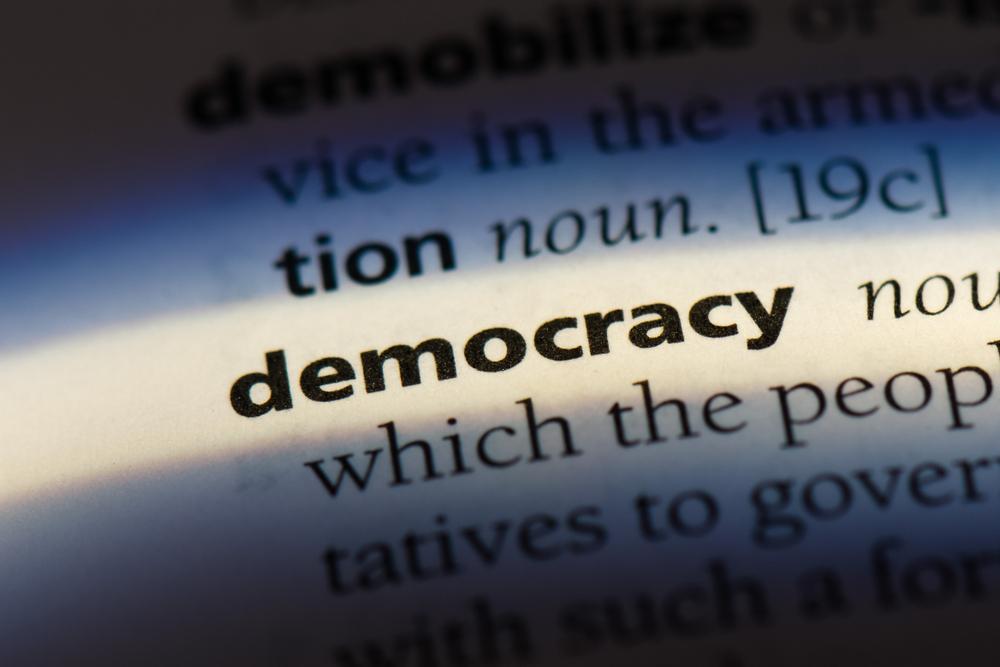
Stockholm, Sweden (Enmaeya News) — A landmark international study released this month finds global democracy under growing strain, with press freedom at its weakest point in half a century and millions of people’s political rights left unresolved as migration accelerates.
The Global State of Democracy 2025: Democracy on the Move, published by the International Institute for Democracy and Electoral Assistance (International IDEA), says more than half of the countries it tracks showed declines in at least one major democratic indicator between 2019 and 2024. In raw numbers, IDEA reports that 94 countries registered declines across core measures such as electoral integrity, rule of law, civil liberties and political participation.
The report highlights four pillars of democratic life: Representation, Rights, Rule of Law and Participation. It finds each under pressure in many parts of the world. Judicial independence and credible electoral processes have weakened in numerous states, while political representation and meaningful participation remain limited for large segments of populations. The authors say these erosions leave democracies vulnerable even where elections continue to be held.
A striking feature of the 2025 report is its warning about press freedom. IDEA documents a sharp fall in media freedom — described as the steepest decline in about 50 years — with roughly one-quarter of the countries assessed suffering notable deterioration. The erosion of independent journalism is tied to a mix of conflict, legal restrictions, economic pressures on media outlets, lawsuits and targeted attacks on reporters.
The report also places special focus on migration and democracy; a theme IDEA calls “Democracy on the Move.” With an estimated 304 million people now living outside their country of birth, the study examines how states include — or exclude — those citizens from political life.
IDEA finds that legal frameworks and practical arrangements for out-of-country voting and participation are uneven, and that many governments lack the administrative capacity or political will to ensure effective engagement of expatriate voters. The report suggests expanding and protecting rights for citizens abroad could strengthen democratic resilience.
The study shows that democracy is slipping in many regions, with Africa and Europe carrying much of the decline. Even countries long seen as strong democracies are showing cracks. Their courts, parliaments and watchdogs are under pressure, media freedom is shrinking, and public trust is fading. Analysts warn that if powerful democracies weaken, it could inspire other governments to copy authoritarian tactics.
International IDEA says several forces are driving the decline in democracy worldwide. These include growing political divisions, the spread of false information, ongoing security threats, governments overusing emergency powers, and economic troubles.
The report also warns that when powerful countries weaken democratic norms, it sets a poor example for others. Crises such as pandemics, wars and large waves of migration make the situation worse unless laws and institutions are reinforced.
To address these challenges, the report offers a list of steps for governments, parliaments and civic groups. These include protecting journalists and independent media, ensuring courts remain free from political pressure, making elections more transparent, and updating laws to give citizens abroad a fair chance to vote. IDEA stresses that solutions must fit each country’s reality and be paired with civic education to help restore public trust.
Human rights groups and democracy experts said the report confirms what they have feared for years: democracy is shrinking in many parts of the world. They agree that outside support can help, but lasting progress will depend on decisions made inside each country and on protecting strong, independent institutions.




